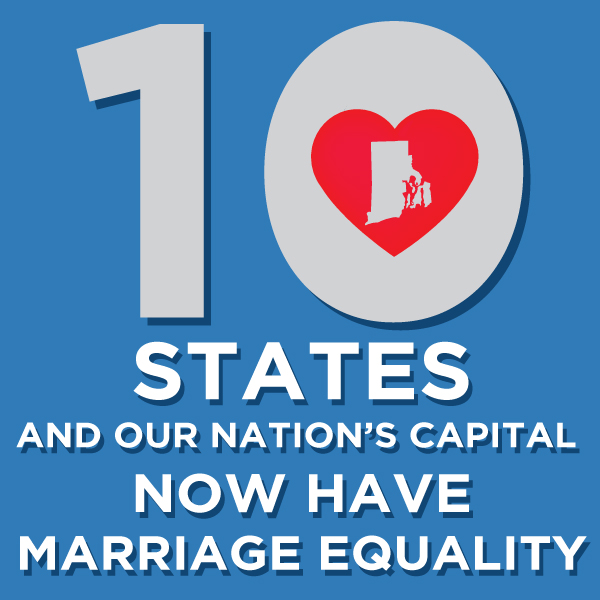Marriage News Blog

Rhode Island Governor Lincoln Chafee (Independent) has signed a bill recognizing the freedom to marry for gay and lesbian couples. The Ocean State will join nine other states and the nationŌĆÖs capital with marriage equality when the legislation goes into effect on Thursday, August 1.

Today, Gov. Chafee penned an Op/Ed in the New York Times that talked about how, as a Republican U.S. Senator, he stood up in 2004 against the proposed federal marriage amendment.
I was one of only four members of the entire Senate to take that stand, along with Senators Ron Wyden, Edward M. Kennedy and Russell Feingold ŌĆö three of the most socially liberal members of the chamber at the time. Hardly common company for a Republican.
As it turned out, I did lose office in 2006, as part of the general rejection of Republican leadership that year. But I was elected governor as an independent in 2010, and I was proud to see that my stand on gay marriage stood up well over the years.
A historic realignment is happening all around us, as Americans from all walks of life realize that this is the right thing to do. It is occurring both inside and outside of politics, through conversations at the office and over kitchen tables, and at different speeds in different parts of the country. But once the people have spoken, politics should do its part to make the change efficient and constructive.
The historic vote in Rhode Island was bolstered by the unanimous support of the Senate Republican Caucus, the first legislative caucus of any political party in any state to unanimously support the freedom to marry.
Marriage equality has been building momentum over the past several weeks both here at home and abroad. France and New ZealandŌĆÖs parliaments both approved legislation last month. While supporters in Delaware and Illinois are hoping to soon follow in Rhode IslandŌĆÖs footsteps. Efforts are also underway in New Jersey, Oregon, and Minnesota.
And we are closer than ever to a resolution in AFERŌĆÖs challenge to CaliforniaŌĆÖ Proposition 8 with a Supreme Court decision expected by the end of June.
